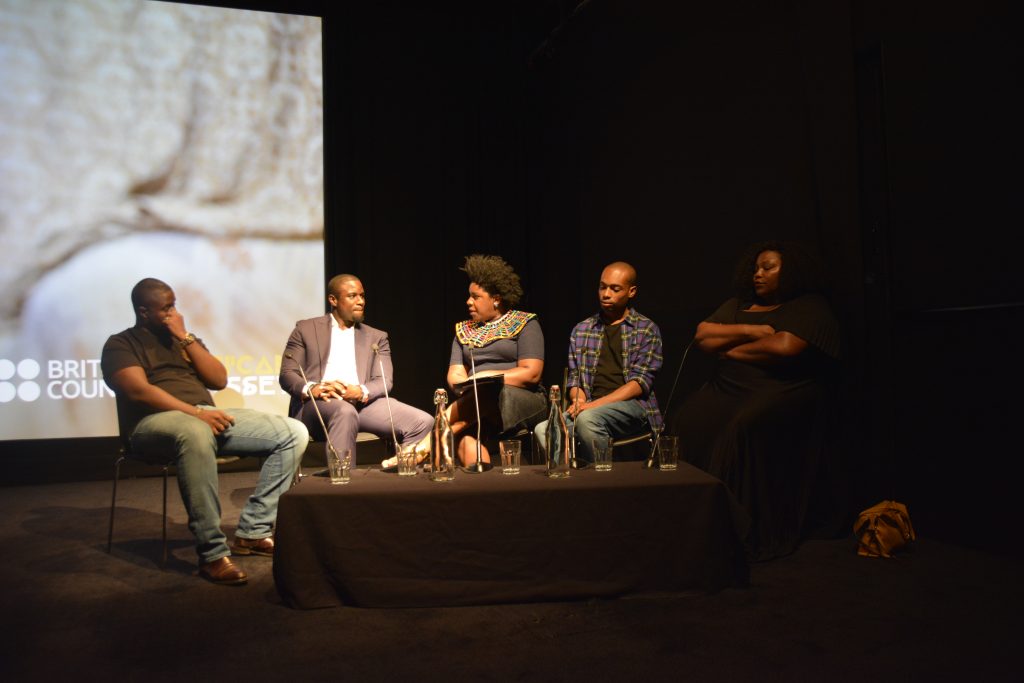Nollywood – The Alternative Take: An Interview with Nadia Denton

Lest anyone think Beyond Nollywood is an elitist backlash, Denton is at pains to stress otherwise. She believes the mainstream Nigerian film industry has played a significant role in the aforementioned resurgence of cultural pride within the Diaspora. ‘Nollywood began with the desire to tell more indigenous, locally-made African stories,’ she reflects. ‘I was fortunate to connect with Chris Obi Rapu, the director of Living in Bondage [widely perceived to be the pioneering Nollywood film]. He saw Nigerians were consuming Mexican soap operas but there was a desire for something from their cultural perspective. I think Nollywood has definitely been very important as a high note for Nigerian – or even West African – identity. It has done a great deal for the Diaspora. Some people saw it as a useful tool for keeping their children more rooted in the culture. It has given its African descent audiences a sense of agency; being able to recognise themselves.’
With Beyond Nollywood however, Denton aims to redress the balance. ‘It’s not so much to play down Nollywood,’ she insists. ‘It’s more to highlight those emerging filmmakers who are not getting visibility. My concern is that Nollywood is a victim of its own success. It’s become a homogenous monster which has pushed out everything else. There’s a debate in the industry now. Some people would argue that everything Nigerian is Nollywood. I don’t believe it is. You have travelling Yoruba theatre that pre-dated Nollywood of which people have a clouded awareness. There’s film-making in the North of the country which is very different from Nollywood. There are people who make documentaries… The work of a lot of my collaborators is not deemed suitable. It’s too ‘arty’. Why should filmmakers of Nigerian descent be restrained to making things about Nigeria?’
Nadia doesn’t seem to have much truck with the cultural ‘appropriation’ argument. She believes exchange is an intrinsic part of the Continent’s history.‘It is part of being human and taking an interest in the outside world. I personally don’t see anything wrong with people meshing influences from external sources to express themselves. At times we can be quite rigid: “…you’re from this place, you do this a particular way…” If we’re looking at the African diaspora in particular, we’ve travelled. We move around and mix. It’s part of our nature. Beyond Nollywood is an exciting reflection of this merging.’Is there nonetheless a danger of imitation?‘The most important thing is authenticity. Go outside and mix with other cultures and be authentic. Some of the most recent Nollywood offerings mimic American styles. It’s just a verbatim cut-and-paste [dialogue]. It doesn’t feel right.’Rom-coms, according to Denton, are a case in point. ‘I’m happy to go and see a romantic comedy but the way the characters are expressing love does not feel natural to me.’ You can picture her cringing. ‘It’s not that people don’t express affection; they just do it differently.’
Denton takes issue with some other recurring tropes in Nollywood, especially pertaining to gender.‘Women tend to occupy roles like the hag; the older mother who is a witch or the young woman who is the prostitute or trickster. Why are the womenfolk so accepting of these parts? Fine, men will write characters and will have their perception, but you wonder what the women’s own view is of these characterisations and whether they believe these should be challenged. I think that’s very complex in terms of Nigeria’s history.’ Speaking of female representation in the Nigerian film industry, Denton produced a BBC radio documentary Shooting it Like a Woman on that very topic. Judging from breakout Nollywood hits like Michelle Bello’s Flower Girl, it seems that even with a woman at the helm, certain gender-based clichés (obsession with relationship status, for instance) stubbornly persist. Nadia believes there are pragmatic factors at play.‘We have to consider that a lot of these filmmakers are working within the constraints of commercial pressures,’ she points out. ‘They might have their own vision of presenting women in a particular way. In terms of investors, distributors and to some degree the audience, there is an expectation to package certain kinds of characters another way. They have to present content to an audience which are largely conservative, accept patriarchy without question and who do think feminism is evil.This is why for me Beyond Nollywood is so important. I want to open up a space where you can make these radical films and we don’t have to worry about a Nigerian audience because I’m aiming for an international one.’
<< PREVIOUS PAGE
NEXT PAGE >>


